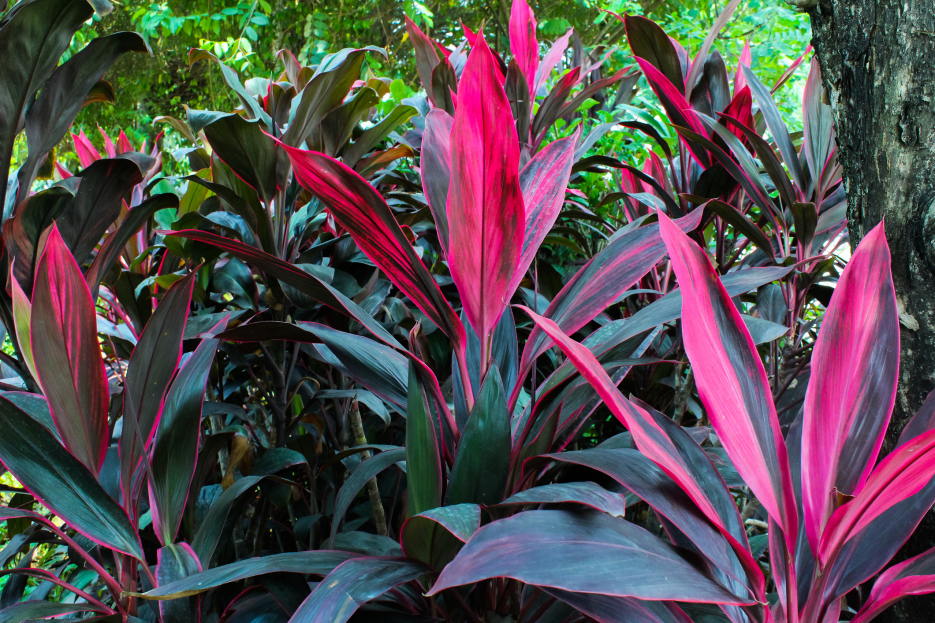
Cordyline fruticosa, often referred to as the Ti plant, is a stunning tropical plant known for its vibrant leaves. With striking leaves that range from deep green to vibrant shades of pink, red, purple, and even orange, this eye-catching plant is a popular choice for both indoor and outdoor spaces.
Originating from Southeast Asia and the Pacific Islands, the Ti plant symbolizes good luck and prosperity in many cultures — making it a meaningful, as well as stunning, addition to your plant collection. To help your Cordyline fruticosa flourish, let’s dive into everything you need to know about its care!
The Ti plant thrives in bright, indirect light. To maintain its vibrant colors, place it near an east or west-facing window where it gets gentle sunlight throughout the day. While it can tolerate lower light conditions, the foliage may become less vivid, with green tones overpowering the colorful hues. Avoid direct sunlight, as too much exposure can scorch the leaves, causing brown spots and faded colors.
Cordyline fruticosa enjoys consistently moist soil, but it’s essential not to overwater. Water the plant once the upper inch of soil feels dry to touch. Ensure you use room-temperature water, as cold water can shock the roots. During warmer months, you’ll need to water more frequently, while in winter, reduce watering to prevent soggy soil. Be mindful of fluoride in tap water — Ti plants are sensitive to it, which can lead to brown leaf tips. If possible, use distilled water, rainwater, or let tap water sit out for 24 hours before watering.
A well-draining, rich potting mix is key to keeping your Ti plant healthy. A combination of standard houseplant soil with added perlite or coconut coir works beautifully. Make sure the pot has drainage holes to prevent water from pooling at the bottom, which could lead to root rot. Repot every 2-3 years, or when the plant outgrows its current container, to refresh the soil and encourage continued growth.
Being a tropical plant, Cordyline fruticosa prefers warm, humid conditions. Keep it in a space with temperatures between 65-85°F (18-29°C). It doesn’t tolerate cold drafts or sudden temperature drops, so avoid placing it near doors, windows, or air conditioning vents. The Ti plant loves humidity — if your home’s air is dry, especially in winter, mist the leaves occasionally or place the pot near a humidifier to maintain the lush foliage.
To maintain its lush foliage and consistent development, apply fertilizer to your Ti plant every 4-6 weeks throughout the growing months (spring and summer). Use a balanced, water-soluble houseplant fertilizer diluted to half strength. Avoid over-fertilizing, as too much can cause leaf burn. In the cooler months, when growth slows, you can pause feeding until spring returns.
Regular pruning helps keep your Ti plant looking full and healthy. Trim any yellow, brown, or damaged leaves to encourage new growth and maintain its tidy appearance. If the plant becomes too tall or leggy, you can cut back the stem — new shoots will emerge below the cut. For an extra shine, wipe the leaves with a damp cloth every few weeks to remove dust and keep the foliage vibrant.
Unfortunately, Ti plants are toxic to pets if ingested, particularly cats and dogs. The plant contains compounds that can cause vomiting, drooling, and other symptoms in pets. To keep your furry friends safe, place your Ti plant in a spot that’s out of reach.